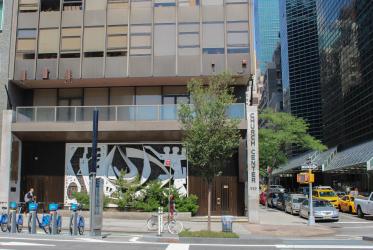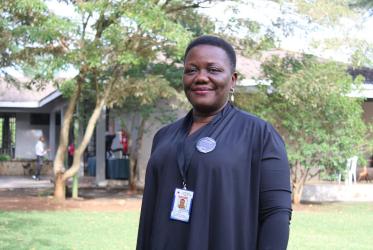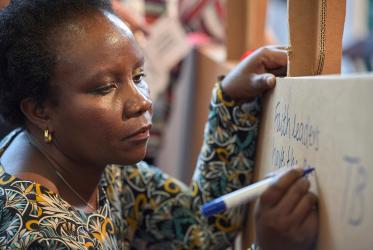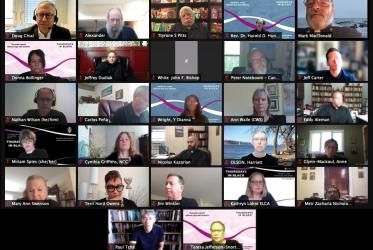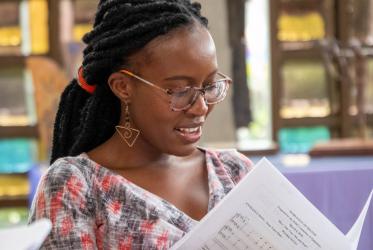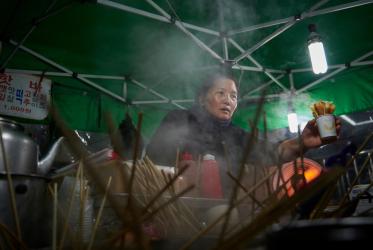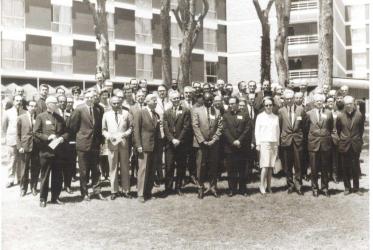Displaying 1 - 20 of 51
Beginning soon: 16 Days against Sexual and Gender-Based Violence
21 November 2023
Theological education in Africa promotes social transformation
03 November 2022
In New York City, the spirit of Thursdays in Black is thriving
06 October 2022
WCC honoured with Geneva Engage Award
01 February 2022
Dr Abuom reflects on women of faith as healers of creation
05 October 2021
Churches in southern Africa stand against violence, xenophobia
10 October 2019
UN day on violence victims stresses religious tolerance
22 August 2019




